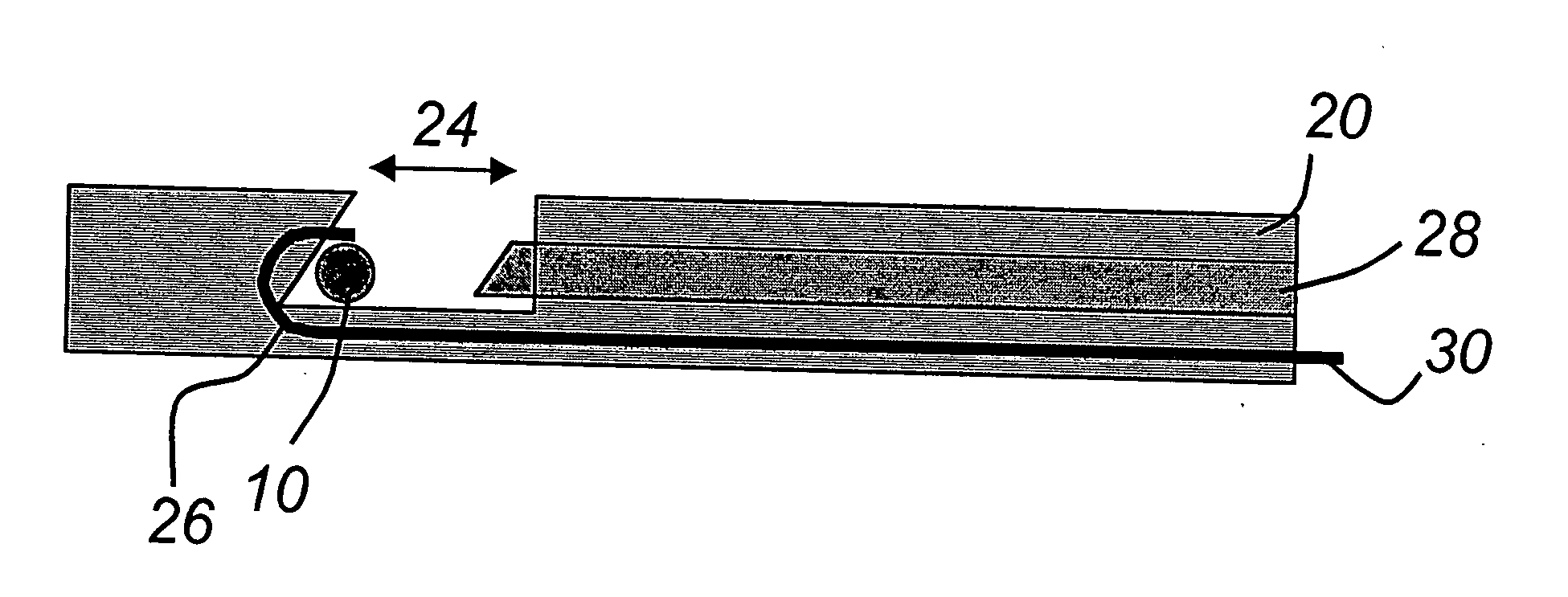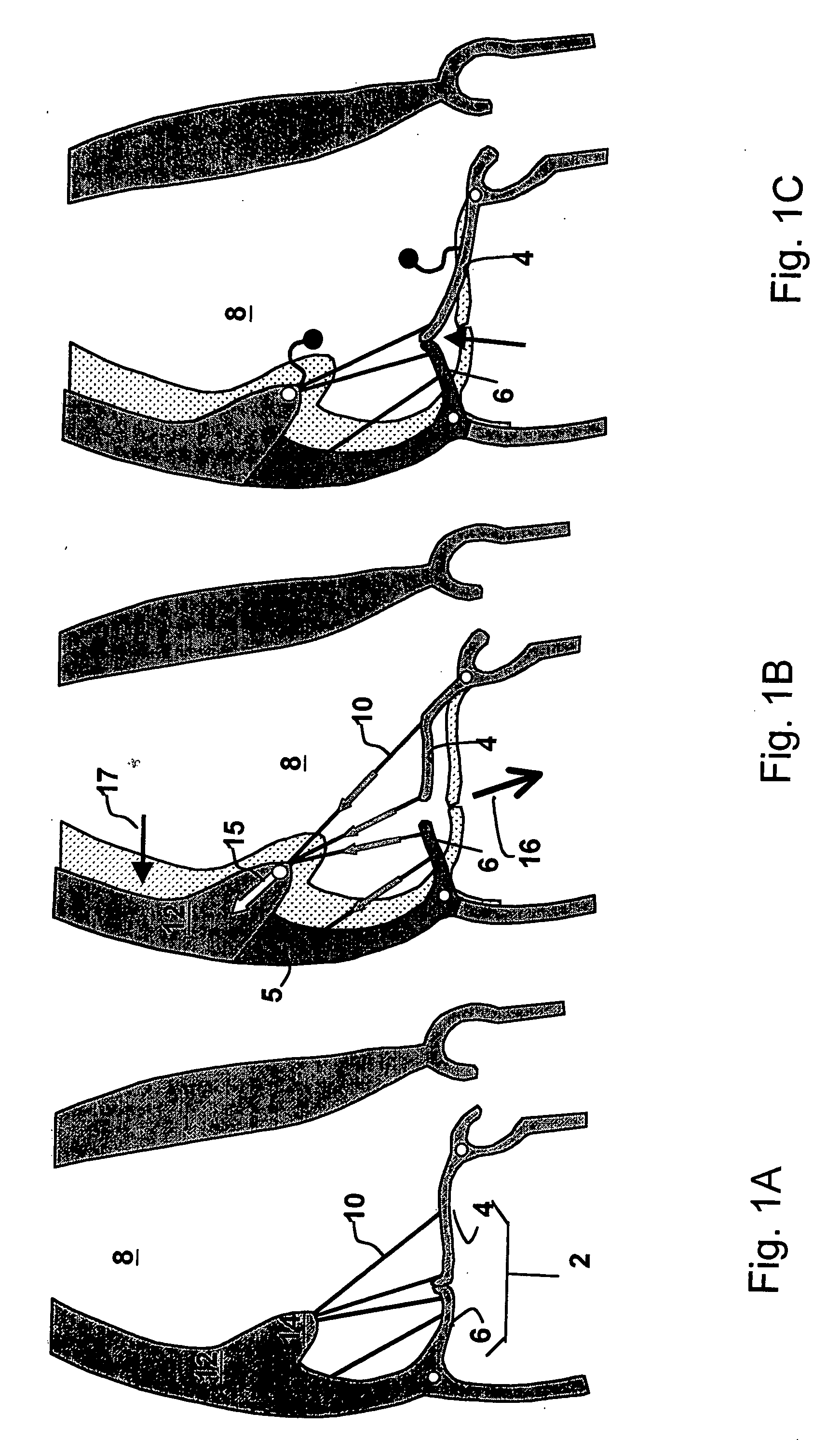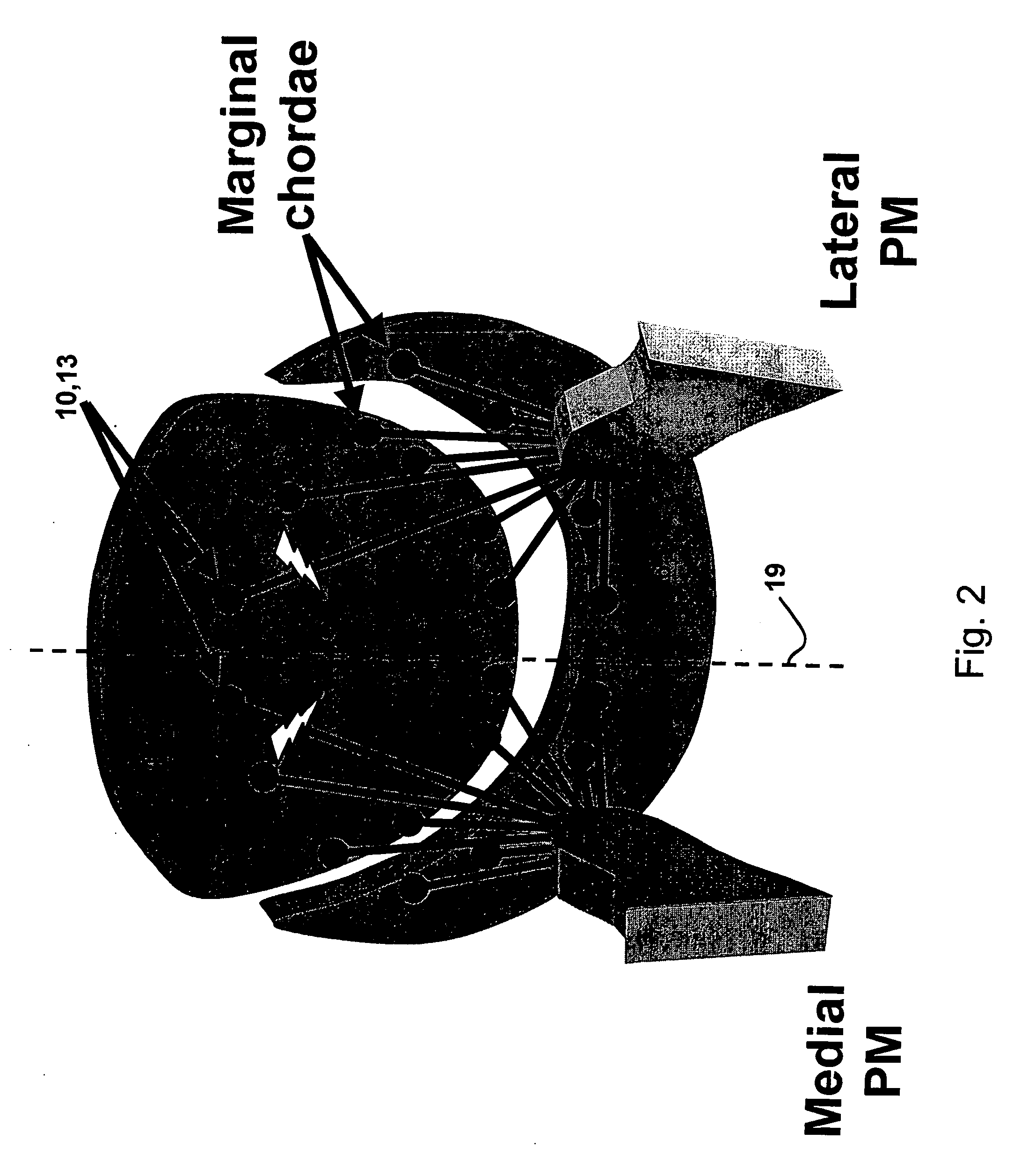Cardiac devices and methods for minimally invasive repair of ischemic mitral regurgitation
a technology of mitral valve and repair method, which is applied in the field of devices and methods for minimally invasive repair of mitral valve regurgitation, can solve the problems of ischemic mitral valve regurgitation double the late mortality, ineffective annular reduction, fatigue and shortness of breath,
- Summary
- Abstract
- Description
- Claims
- Application Information
AI Technical Summary
Benefits of technology
Problems solved by technology
Method used
Image
Examples
Embodiment Construction
[0034] Preferred embodiments of the present invention will now be described with reference to the several figures of the drawing.
[0035] As shown in FIG. 3B, the present invention involves a percutaneous catheter 20 that may be advanced retrograde from the aorta into the outflow tract 22 of the left ventricle. The catheter is inserted using a standard guidewire approach (Seldinger technique), typically from the femoral artery in the groin. The catheter has a pre-formed or maneuverable bend that brings a cutting instrument 25 near a chord to be severed, such as the basal chord 10, which is the first chord encountered by catheter 20 just below the outflow tract, as seen in the ultrasound image pictured in FIG. 3A. (The tip of the catheter may be maneuvered, for example, using steering wires passed down its length.) In other embodiments, more than one chord will be cut. It may be preferable in some cases to sever pairs (symmetric or not) of chords, both of which are attached to the ant...
PUM
 Login to View More
Login to View More Abstract
Description
Claims
Application Information
 Login to View More
Login to View More - R&D
- Intellectual Property
- Life Sciences
- Materials
- Tech Scout
- Unparalleled Data Quality
- Higher Quality Content
- 60% Fewer Hallucinations
Browse by: Latest US Patents, China's latest patents, Technical Efficacy Thesaurus, Application Domain, Technology Topic, Popular Technical Reports.
© 2025 PatSnap. All rights reserved.Legal|Privacy policy|Modern Slavery Act Transparency Statement|Sitemap|About US| Contact US: help@patsnap.com



